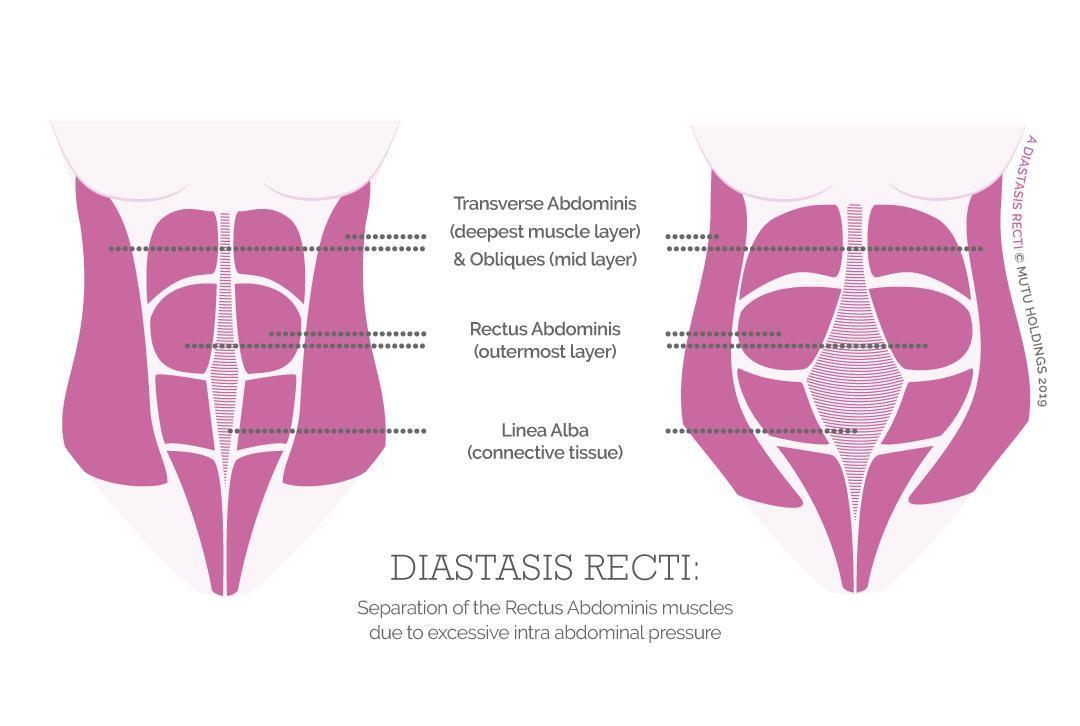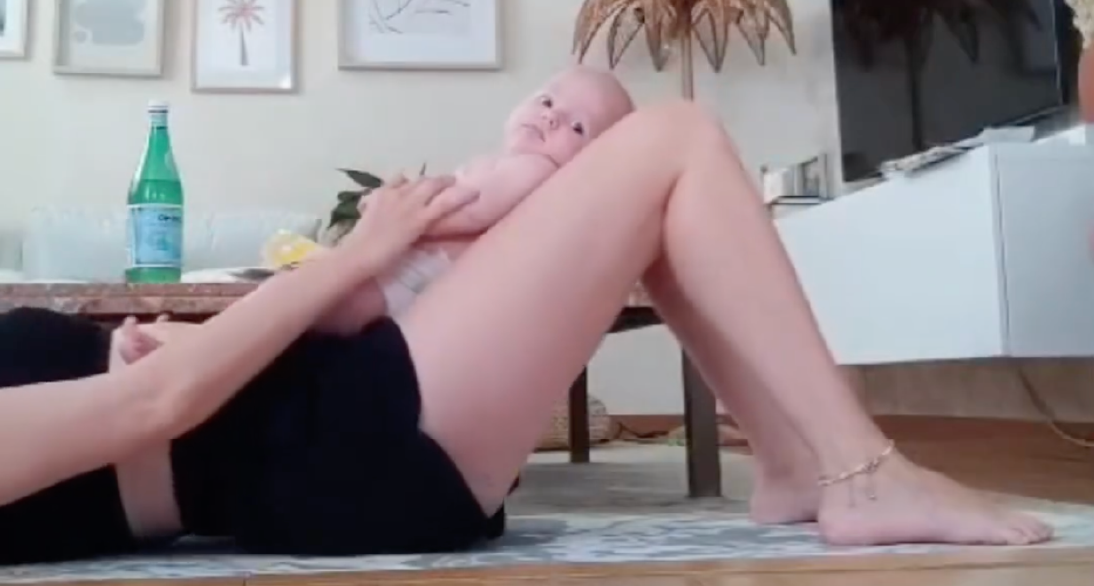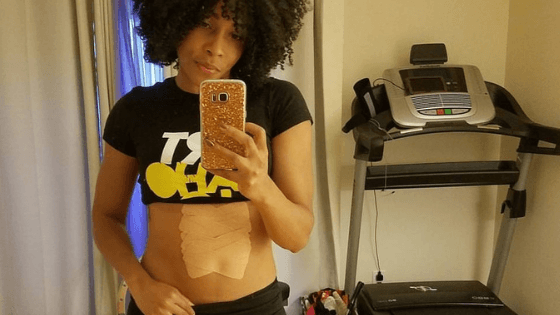Diastasis Recti Abdominis is the separation or gap between of the 2 parts of the Rectus Abdominis (six-pack) muscle. It occurs when the collagen tissues of the Linea Alba and Linea Semiluniaris (mid-line connective tissue) stretch to make room for your growing uterus during pregnancy. But what actually happens to your abs?
Diastasis Recti Abdominis: what causes it?
Diastasis recti abdominis occurs when excessive intra-abdominal pressure is placed on your core muscles. DR is common in the later stages of pregnancy, particularly second or subsequent pregnancies. It remains there postpartum, when your body may not be bio-mechanically aligned to maintain pressure and withstand load. As a result your core muscles may not be as stable as they could be. Your stomach may appear ‘pooched’ or like you’re still pregnant even when you’re not..
The muscle that separates at the front is one of four layers of abdominal muscles. These are: the Transverse Abdominis (deepest muscle layer) the Interior and Exterior Obliques – the next 2 layers that form your waist – and then the Rectus Abdominis on the outside.
What happens to the muscles?
When the two parts of the outer muscle separate, the area between them widens and the connective tissue here gets thinner. The separation takes other muscular and support structures along with it. This leaves the front of your abdomen unsupported, which is why you may feel like you’re ‘falling out at the front’ especially when lifting or exercising.

Diastasis recti abdominis is a symptom of excessive intra abdominal pressure. This means pressure inside your abdomen and pelvis is pushing outwards, or downwards. It’s the same issue that creates other pelvic and abdominal problems including hernia and prolapse.
So the gap isn’t the root problem that needs solving. The reason for the gap is. DR should be treated as part of an integrated programme designed to restore, re-connect and then strengthen the entire core musculature. This is the medically proven and recommended approach and is based on recent research. The idea of focussing only on ‘closing the gap’ and splinting or binding to pull the two sides together, is not the most up-to-date or evidence-based solution.
You can test yourself for a diastasis at home, by following the instructions in the diastasis test video here.
Don’t worry if you have a gap! It is normal for your abdominal muscles to separate during pregnancy to make room for your growing uterus. You’ve done nothing wrong, and nothing is torn, split or broken. The MUTU System programme is specifically designed and clinically proven to help.












